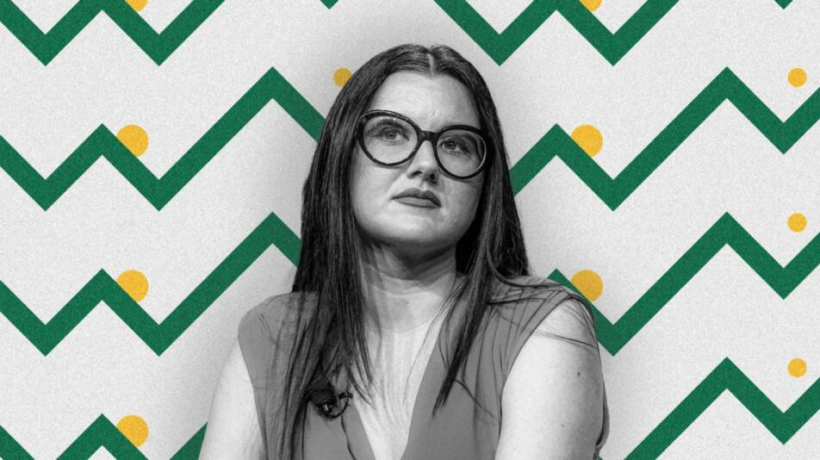Instacart starts trading today on Nasdaq.
With its highly anticipated initial public offering, the grocery delivery company seeks to raise as much as $660 million at a valuation north of $9 billion.
How the San Francisco-based company performs will serve as a bellwether for other businesses planning on going public, like German shoe company Birkenstock, as well as the hundreds of startups that grew in the 2010s to unicorn status (a private valuation of $1 billion or more) and have been waiting for favorable market conditions to offer their shares.
The CEO taking Instacart public is Fidji Simo, who assumed the top job in 2021 after a long stint at Facebook (now Meta), where she became one of cofounder and CEO Mark Zuckerberg’s key lieutenants. If you want to understand the Instacart IPO and its prospects, you need to understand Simo and how she has steered the company into the public markets.
FIDJI SIMO IS A FACEBOOK VETERAN
Simo, a marketer by training, spent a decade—from 2011 to 2021—at Facebook, where she eventually oversaw the flagship Facebook app. During her time there she also served as VP of video games and monetization, as well as director of product management. Simo was widely seen as a potential successor to Zuckerberg.
SIMO BROUGHT SOME OF THE FACEBOOK PLAYBOOK TO INSTACART
Instacart will go public as a profitable company. This echoes Facebook’s experience when it went public in 2012, as it, too, was a profitable tech company at its IPO. Instacart’s revenue increased 15% last quarter compared to the same quarter in 2022.
Simo achieved these growth metrics in part because she was able to reduce operating expenses but notably because she helped introduce Instacart’s advertising business, which uses data about shoppers to sell ads.
Grocery brands such as Philadelphia cream cheese and Cheez-It crackers can advertise to Instacart consumers as they shop—and even produce custom content around ingredients. Nearly one-third of Instacart’s revenue last year—some $2.5 billion—came from its ads and software businesses.
SIMO TOOK CONTROL AT A TOUGH TIME FOR INSTACART—AND TURNED THE COMPANY AROUND
In 2020, Instacart enjoyed a pandemic bump: Sales rose 330% that year. But when Simo took over as CEO from cofounder Apoorva Mehta in August 2021, growth had slowed down as people went back to shopping in person.
Then, in 2022, tech stocks crashed. Instacart, which had been on the verge of going public, postponed its IPO—and slashed its internal valuation from $39 billion in 2021 to $10 billion late last year.
Simo has managed all of the meta narrative around the company’s valuation—including which venture capitalists bought in early enough to win big and which ones funded the company at its valuation peak and are effectively underwater. Shares acquired by Sequoia and Andreessen Horowitz when each invested $50 million (when Instacart was valued at $39 billion) have declined in value by roughly 75%.
SIMO HAS COFOUNDED A HEALTHCARE INSTITUTE AND NONPROFIT
Simo is cofounder of a $35 million clinic and research facility called the Metrodora Institute, which opened in March. Metrodora is dedicated to treating women with neuroimmune axis disorders—diseases including endometriosis, Guillain-Barré syndrome, long COVID, multiple sclerosis, lupus, and more, in which the immune system appears to attack the nervous system.
Simo was inspired to start Metrodora after dealing with endometriosis during pregnancy and then falling sick with another chronic illness, postural orthostatic tachycardia syndrome, or POTS, two poorly understood and possibly interrelated conditions.
Metrodora, which is funded by private investors, including Simo herself, is a for-profit clinic and research center. The institute collects complete sets of data and samples from consenting patients and provides them to partner labs at research institutions and biotech firms that use them to help find cures. Agreements with institutions differ, but Metrodora and its investors could potentially profit in the future from cures it had a hand in producing.
SIMO COMES FROM A FAMILY OF FISHERMEN
Simo, 37, grew up in the seaside town of Sète, France. She is the daughter of a sardine fisherman and a boutique owner and is the first in her family to graduate from college. She is named Fidji after the perfume by Guy Laroche that her mother wore.







